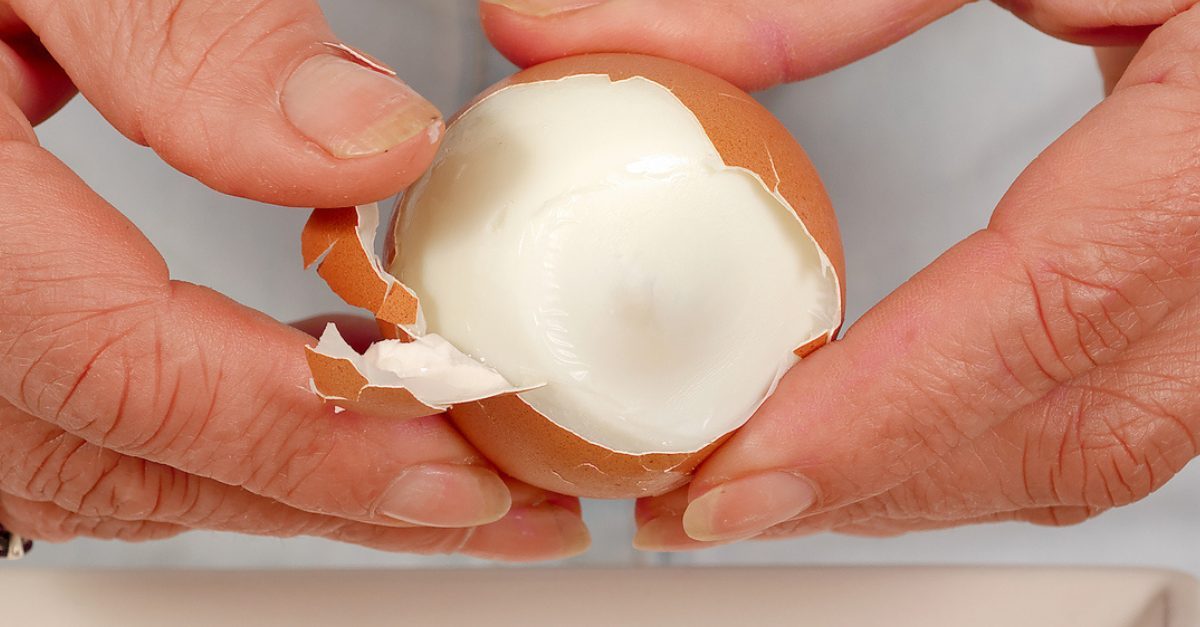5 Mistakes You Must Avoid When Making Hard-Boiled Eggs
Boiling eggs shouldn't need a guide, right? Wrong! What happens when you just can't seem to get perfectly hard-boiled eggs every time you try? You shouldn't have to make do with poorly cooked eggs, or less aesthetic ones. Read on for 5 common mistakes people make when hard-boiling eggs.
;Resize,width=742;)
Hard-boiled eggs are the perfect accompaniment for sandwiches, salads, noodles, spaghetti, rice bowls and so many others. That's why it can become rather bothersome when you can't seem to get them right.
It might seem like basic knowledge but cooking hard-boiled eggs actually requires some handy knowledge to avoid common mistakes that produce imperfect results.
Read ahead for some common mistakes People make when cooking hard-boiled eggs and what you should do instead:
Mistake 1: You've been using eggs that are too fresh

Using fresh eggs sounds like the best thing to do but definitely not the best if you want perfectly peeled eggs. That's because as eggs gradually age, two things happen that make them easier to peel. First, they lose moisture through small pores in the shell, and the air pocket at the tip of the egg gets larger. Secondly, the pH level of the whites rise, making them less adhesive less strongly to the shell.
DO: Use older eggs for hard-boiled eggs; don't worry, they are safe for consumption and aren't any less nutritious than fresh eggs!
Mistake 2: You start with boiling water

NEVER start cooking eggs in a pot of boiling water as this makes it highly likely that they'll crack before they're fully cooked. With leaked contents in the surrounding water, the eggs would be far from perfect.
DO: Cooking hard-boiled eggs should always begin with cool water. Bringing the water and eggs up in temperature together promotes even cooking and prevents cracking.
Mistake 3: You use the wrong pot

Using a pot that's not the right size for the number of eggs you're boiling will cause them to cook unevenly and increase their chances of cracking.
DO: Use a pot that has adequate room for the eggs. Ensure that the eggs sit in a single layer and have enough space to move around during cooking.
Mistake 4: You cook them for too long

Overcooked boiled eggs are far from perfect. Their yolks are typically dry and crumbly with a gray-green tint, and a slightly sulphur-like odor while the whites are rubbery.
DO: Start by placing the eggs in a saucepan, covering them with cold water, and bringing to a boil. Then, remove the pan from the heat, cover it, and let it sit for 10 minutes for firm yet creamy hard-boiled eggs, or up to 15 minutes for very firm eggs.
Mistake 5: You skip the ice bath
Eggs continue cooking even after they're removed from boiling water through heat from carryover cooking. If it's not stopped, you risk overcooking the eggs.
DO: Transfer the eggs to an ice bath to bring a sharp halt to the carryover heat. Also, this will help separate the egg membrane from the shell, making it easier to peel.
Do you know other helpful tips to get perfectly hard-boiled eggs? Do share!
;Resize,width=767;)
;Resize,width=712;)
;Resize,width=712;)
;Resize,width=712;)
